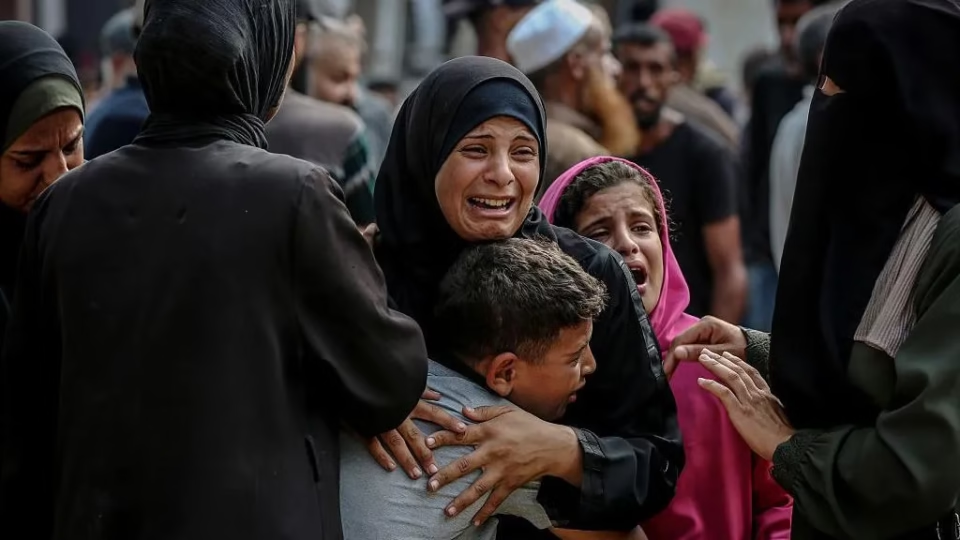Aug 22 – The United Nations says Gaza City and surrounding areas are officially suffering from famine, and it will likely spread.
A global huger monitor, The Integrated Food Security Phase Classification (IPC) system, said on Friday, 514,000 people – close to a quarter of Palestinians in Gaza – are experiencing famine, with the number due to rise to 641,000 by the end of September.
Some 280,000 of those people are in a northern region covering Gaza City – known as Gaza governorate – which the IPC said was in famine following nearly two years of war between Israel and Palestinian militants Hamas.
It was the first time the IPC has recorded famine outside of Africa, and the global group predicted that famine conditions would spread to the central and southern areas of Deir al-Balah and Khan Younis by the end of next month.
It added that the situation further north could be even worse than in Gaza City, but limited data prevented any precise classification. Reuters has previously reported on the IPC’s struggle to get access to data required to assess the crisis.
“It is a famine that we could have prevented had we been allowed,” said U.N. humanitarian chief Tom Fletcher. “Yet food stacks up at borders because of systematic obstruction by Israel.”
Israel dismissed the findings as false and biased, saying the IPC had based its survey on partial data largely provided by Hamas, which did not take into account a recent influx of food.
The report was an “outright lie”, said Israeli Prime Minister Benjamin Netanyahu.
A spokesperson for the State Department, said the U.S. Government is focused on getting aid delivered to the people of Gaza. Addressing these challenging issues means honestly addressing problems for the sake of Gazans, who deserve better, not engaging in semantics,” he said.
The IPC – an initiative involving 21 aid groups, U.N. agencies and regional organizations funded by the European Union, Germany, Britain and Canada – has only registered famines four times previously – in Somalia in 2011, South Sudan in 2017 and 2020 and in Sudan in 2024.
For a region to be classified as in famine at least 20% of people must be suffering extreme food shortages, with one in three children acutely malnourished and two people out of every 10,000 dying daily from starvation or malnutrition and disease.
U.N. Secretary-General Antonio Guterres said the Gaza famine was a “man-made disaster, a moral indictment, and a failure of humanity itself”.
He called for an immediate ceasefire, the release of all hostages still held by Hamas and unfettered humanitarian access.
U.N. human rights chief Volker Turk warned that deaths from starvation could amount to a war crime.
Kate Phillips-Barrasso, vice president of global policy and advocacy at Mercy Corps aid agency, said it was a frustration that the IPC report was not legally binding.
“We have photos, we have clear data, and now we have this assessment, yet it still hasn’t translated into the urgent action needed to stop people from starving,” she said
Underscoring those worries, Britain called the IPC report “utterly horrifying” and demanded that Israel immediately allow unhindered supplies of food, medicines and fuel.
Britain, Canada, Australia and many European states recently said the humanitarian crisis had reached “unimaginable levels”.
The IPC said its analysis only covered people living in Gaza, Deir al-Balah and Khan Younis governorates. It was unable to classify North Gaza governorate due to access restrictions and a lack of data and it excluded any remaining population in the southern Rafah region as it is largely uninhabited.
The U.N. has complained of obstacles to delivering and distributing aid in Gaza, blaming impediments on Israel and lawlessness.
The Gaza war was triggered on October 7, 2023, when Hamas killed 1,200 people in southern Israel and took some 250 hostages, according to Israeli tallies. Since then, Israel’s military campaign has killed more than 62,000 Palestinians, according to Gaza health authorities.



